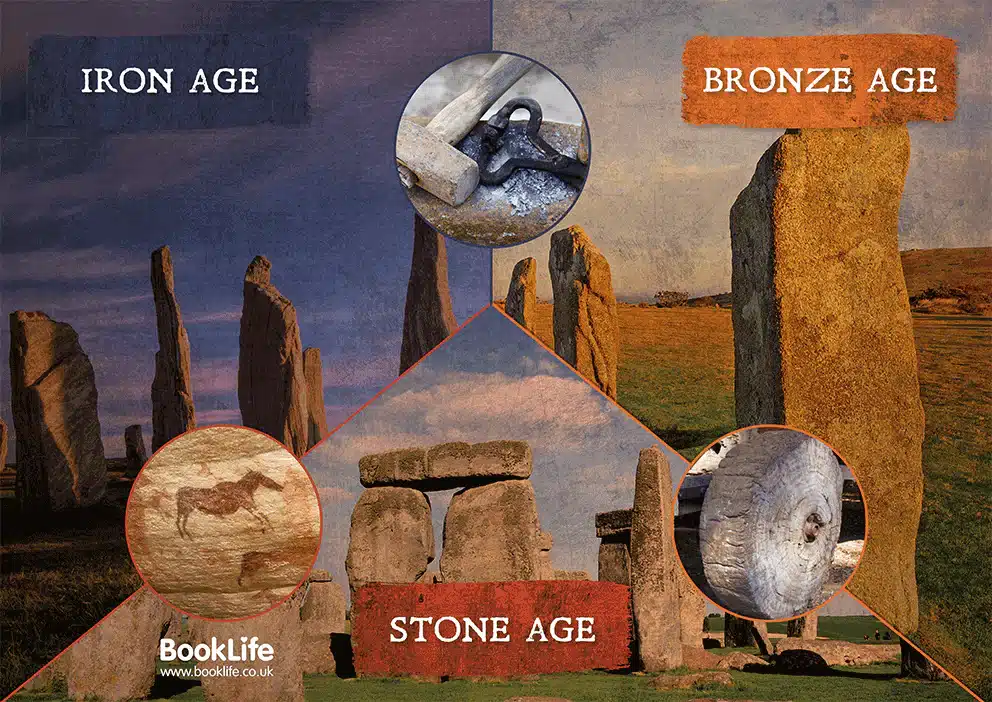What a fantastic half-term we’ve had so far!
The children have truly impressed us with their creativity, commitment to learning, and caring attitudes towards one another.
English
Our English text this half term is Stone Age Boy, which ties in perfectly with our topic: ‘The Stone Age, Bronze Age, and Iron Age’. At the beginning of the unit, the children explored how to use carefully selected adjectives, verbs, adverbs, and similes to create vivid imagery and engage the reader’s imagination.
We have since progressed to writing an alternative ending to the story, with a particular focus on the suspense genre. The children have thoroughly enjoyed this challenge and have shown great creativity in their efforts to slow the narrative pace, vary sentence structures, and appeal to the reader’s five senses using a technique called “Show, Not Tell.”
Throughout the writing process, the children are encouraged to proofread their work—either independently or with a partner—to check for spelling and punctuation errors. They also make use of the ARMS and COGS strategies to improve their writing by Adding, Removing, Moving, or Substituting words and checking for Coherence, Organisation, Grammar, and Spelling.
Spelling
It is important that children apply the spelling rules they have learned during their daily lessons. Please continue to support this by regularly practising the specific rules noted in their logbooks each week.
Maths
The principal focus of mathematics teaching in lower key stage 2 is to ensure that pupils become increasingly fluent with whole numbers and the four operations, including number facts and the concept of place value.
Year 3
In year 3, the children have explored the place value of numbers to 1000 and are now learning about addition and subtraction. The National Curriculum objects are listed below.

Year 4
In year 4, the children have learnt about the place value of numbers to 10,000. The National Curriculum objects are detailed below.

Year 4 multiplication check
In Year 4, children will take part in the Multiplication Tables Check in June. This assessment evaluates their recall of times tables up to 12 × 12. To support their success, it is important that they practise regularly at home.
Times Tables Rock Stars is an excellent online platform designed to help improve fluency in multiplication.

Science
We had a fantastic Science Week focused on the topic Animals, including Humans.
Year 3
The children explored the idea that animals, including humans, require the right types and amounts of nutrition, and that they cannot produce their own food. They particularly enjoyed sorting play food into the correct food groups, and examining food packaging to identify nutritional patterns.
In addition, they learned that humans and some other animals have skeletons and muscles that provide support, protection, and enable movement.
Year 4
The children began with a scientific enquiry into the digestive system, exploring the important roles that key organs play in the digestion of food. They were highly engaged in discussions and activities that helped them understand this vital bodily process.
Following this, the focus shifted to teeth and food chains. The children identified different types of teeth and explained their specific functions. They also constructed and interpreted a variety of food chains, demonstrating an understanding of producers, predators, and prey.
History
We have thoroughly enjoyed travelling back to prehistoric times to explore the Stone Age, Bronze Age, and Iron Age. Throughout this topic, the children have developed their historical enquiry skills by investigating a series of thought-provoking questions:

- Enquiry 1 – How much did life change between the Palaeolithic and Mesolithic periods in Britain?
- Enquiry 2 – Why did the Neolithic people of the Stone Age start to farm if it may have made their lives harder?
- Enquiry 3 – How have people explained Stonehenge since it was built?
- Enquiry 4 – What can Julis Caesar tell us (and not tell us) about Iron Age Britian?
- Enquiry 5 – Which turning point between 9300 BCE and 43 CE changed Britain most.
These enquiries have encouraged the children to think critically, consider different perspectives, and develop a deeper understanding of how life evolved throughout prehistoric Britain.
LKS2 Workshop
Lower Key Stage 2 took part in an amazing workshop which brought their learning about prehistoric Britain to life. During the session, the children created a large interactive timeline in the hall, explored a range of Stone Age artefacts and animal skins, and examined images of original cave art.
Inspired by what they saw, the children then designed and created their own artwork, using authentic examples as a reference. The workshop concluded with a fascinating look at Bronze and Iron Age military equipment, allowing the children to make connections between different historical periods.
Be sure to visit our Facebook page to see photos from this exciting and engaging day!
We’re looking forward to seeing you during our Learn With us afternoon on Monday 20th October at 14:00.
Art
We are currently hard at work in Art, creating replicas of Stone Age, Bronze Age, and Iron Age jewellery in preparation for our upcoming exhibition.
Before beginning their creations, the children researched jewellery from each period, investigating how it was made, the materials used, and how styles evolved over time. They particularly enjoyed experimenting with natural dyes to better understand how people in prehistoric times might have coloured their jewellery.
We’re looking forward to showcasing the children’s fantastic work at the exhibition!
Computing
Throughout this unit, the children have developed their understanding of branching databases and how to create them. They are currently using yes/no questions to explore the concept of attributes and how these can be used to sort and classify groups of objects.
Next, they will apply this knowledge to create both physical and digital branching databases, demonstrating their ability to organise information logically and effectively.
Spanish
This half term, the children are studying the unit ‘The People Around Me’. By the end of the unit, they should be able to identify and introduce some family members, name common pets, and recognise several letters of the Spanish alphabet.
PE
Dance – Wild animals
The children are thoroughly enjoying their dance unit, Wild Animals. They have particularly engaged with responding to different stimuli to bring characters to life through drama and dance. As the unit has progressed, they have developed their skills by improvising a wider variety of movements, both individually and in extended sequences with a partner.
Handball
Lower Key Stage 2 have also been learning the skill of handball, with a particular focus on passing and receiving to maintain possession of the ball. As the unit progresses, the children will develop an understanding of defensive skills, including how to win the ball back.



